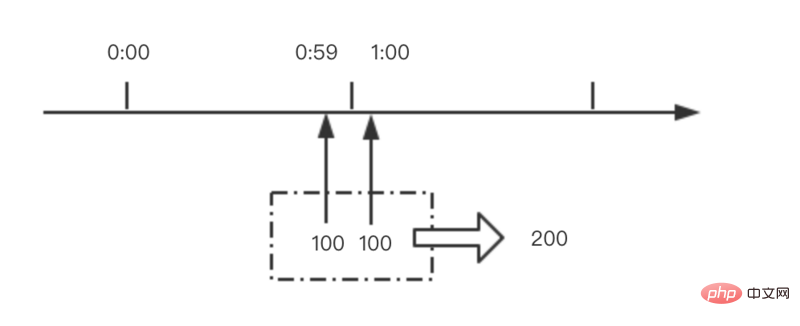Both lvs and nginx can be used as multi-machine load solutions. They each have their own advantages and disadvantages. In the production environment, the actual situation needs to be carefully analyzed and utilized.

Advantages of lvs:
1. Strong load resistance, because the logic of how lvs works is very simple, and It works at layer 4 of the network layer and is only used for request distribution. There is no traffic, so there is basically no need to think too much about efficiency. LVS generally rarely fails. Even if it does, it is usually caused by problems elsewhere (such as memory, CPU, etc.).
2. Configurability, this is usually a major disadvantage but also a major advantage, because there are not many configurable options, so except for adding or removing servers, you do not need to touch it often, which greatly Reduces the chance of human error.
3. Stable work, because the province has strong load resistance, so high stability is natural. In addition, various LVS have complete dual-machine hot backup solutions, so there is no need to worry about the equalizer itself. What problems may occur? If a node fails, LVS will automatically identify it, so the overall system is very stable.
4. No traffic, lvs only distributes requests, and the traffic does not go out from itself, so you can use it to do some line diversion. There is no traffic and the IO performance of the equalizer is not affected by large traffic.
5.lvs can basically support all applications. Because green work is on layer 4, it can load balance almost all applications, including http, databases, chat rooms, etc.
In addition: lvs is not completely able to identify node failures. For example, in the wlc allocation mode, if a node in the cluster is not configured with VIP, the entire cluster will be unusable. In this case, the wrr allocation method will be lost. a machine. This issue is currently still under further testing. So it’s better to be more careful when using LVS.
The results of comparison between nginx and lvs:
1.nginx works on the 7th layer of the network, so it can implement diversion strategies for the http application itself, such as For domain names, directory structures, etc., in comparison, lvs does not have such functions, so nginx can be used in far more situations than lvs based on this alone; but these useful functions of nginx make it more adjustable than LVS, so you often have to touch it. Judging from the second advantage of LVS, the more you touch it, the greater the chance of human problems.
2.nginx has less dependence on the network. In theory, as long as ping is successful and webpage access is normal, nginx can be connected. nginx can also distinguish between internal and external networks. If it is a node that has both internal and external networks , which is equivalent to a single machine having a backup line; LVS is more dependent on the network environment. At present, the server is in the same network segment and LVS uses direct mode to distribute traffic, so the effect is better guaranteed. Also note that LVS needs to apply for at least one IP from the hosting provider to be used as a visual IP. It seems that IPs from the same province cannot be used as VIP. To be a good LVS administrator, you really need to follow up and learn a lot of knowledge about network communication. It is no longer as simple as http.
3.nginx is relatively simple to install and configure, and it is also very convenient to test, because it can basically print out errors in the log. The installation, configuration, and testing of LVS take a relatively long time, because as mentioned above, LVS is highly dependent on the network. In many cases, failure to configure successfully is due to network problems rather than configuration problems. If there is a problem, it must be solved accordingly. It will be much more troublesome.
4.nginx can also withstand high loads and is stable, but the load is very poor and the stability is poor. There are several levels of lvs: nginx handles all traffic, so it is limited by machine IO and configuration; its own bugs are also It is still unavoidable; nginx does not have a ready-made dual-machine hot backup solution, so running on a single machine is still relatively risky, and it is difficult to say anything about a single machine.
5.nginx can detect internal server failures, such as status codes, timeouts, etc. returned by the server processing web pages, and will resubmit requests that return errors to another node. Currently, ldirectd in lvs can also support monitoring the internal conditions of the server, but the principle of lvs prevents it from resending requests. Regarding resending the request, for example, if the user is uploading a file, and the node processing the upload happens to fail during the upload process, nginx will switch the upload to another server for reprocessing, and lvs will be directly disconnected. If Users may be annoyed by uploading a large or important file.
6.nginx’s asynchronous processing of requests can help the node server reduce the load. If you use Apache to provide direct external services, then when there are many narrowband links, the Apache server will occupy a large amount of memory and cannot be released. Use more than one If nginx acts as an Apache proxy, these narrowband links will be blocked by nginx, and too many requests will not accumulate on Apache, thus reducing a considerable amount of memory usage. Using Squid has the same effect in this regard. Even if Squid itself is configured not to cache, it will still be of great help to Apache. LVS does not have these functions, so it cannot be compared.
nginx can also be used as a mid-level proxy. At this level, nginx has basically no rivals. The only one that can shake nginx is lighttpd. However, lighttpd is not yet able to achieve the full functions of nginx, and the configuration is not so clear and easy to read. . In addition, the IP address of the middle-level agent is also important, so having a VIP and LVS for the middle-level agent industry is the most perfect solution.
The specific application needs to be analyzed in detail. If it is a relatively small website (daily pv
For more Nginx related technical articles, please visit the Nginx usage tutorial column to learn!
The above is the detailed content of The difference between nginx and lvs. For more information, please follow other related articles on the PHP Chinese website!
 内存飙升!记一次nginx拦截爬虫Mar 30, 2023 pm 04:35 PM
内存飙升!记一次nginx拦截爬虫Mar 30, 2023 pm 04:35 PM本篇文章给大家带来了关于nginx的相关知识,其中主要介绍了nginx拦截爬虫相关的,感兴趣的朋友下面一起来看一下吧,希望对大家有帮助。
 nginx限流模块源码分析May 11, 2023 pm 06:16 PM
nginx限流模块源码分析May 11, 2023 pm 06:16 PM高并发系统有三把利器:缓存、降级和限流;限流的目的是通过对并发访问/请求进行限速来保护系统,一旦达到限制速率则可以拒绝服务(定向到错误页)、排队等待(秒杀)、降级(返回兜底数据或默认数据);高并发系统常见的限流有:限制总并发数(数据库连接池)、限制瞬时并发数(如nginx的limit_conn模块,用来限制瞬时并发连接数)、限制时间窗口内的平均速率(nginx的limit_req模块,用来限制每秒的平均速率);另外还可以根据网络连接数、网络流量、cpu或内存负载等来限流。1.限流算法最简单粗暴的
 nginx+rsync+inotify怎么配置实现负载均衡May 11, 2023 pm 03:37 PM
nginx+rsync+inotify怎么配置实现负载均衡May 11, 2023 pm 03:37 PM实验环境前端nginx:ip192.168.6.242,对后端的wordpress网站做反向代理实现复杂均衡后端nginx:ip192.168.6.36,192.168.6.205都部署wordpress,并使用相同的数据库1、在后端的两个wordpress上配置rsync+inotify,两服务器都开启rsync服务,并且通过inotify分别向对方同步数据下面配置192.168.6.205这台服务器vim/etc/rsyncd.confuid=nginxgid=nginxport=873ho
 nginx php403错误怎么解决Nov 23, 2022 am 09:59 AM
nginx php403错误怎么解决Nov 23, 2022 am 09:59 AMnginx php403错误的解决办法:1、修改文件权限或开启selinux;2、修改php-fpm.conf,加入需要的文件扩展名;3、修改php.ini内容为“cgi.fix_pathinfo = 0”;4、重启php-fpm即可。
 如何解决跨域?常见解决方案浅析Apr 25, 2023 pm 07:57 PM
如何解决跨域?常见解决方案浅析Apr 25, 2023 pm 07:57 PM跨域是开发中经常会遇到的一个场景,也是面试中经常会讨论的一个问题。掌握常见的跨域解决方案及其背后的原理,不仅可以提高我们的开发效率,还能在面试中表现的更加
 nginx部署react刷新404怎么办Jan 03, 2023 pm 01:41 PM
nginx部署react刷新404怎么办Jan 03, 2023 pm 01:41 PMnginx部署react刷新404的解决办法:1、修改Nginx配置为“server {listen 80;server_name https://www.xxx.com;location / {root xxx;index index.html index.htm;...}”;2、刷新路由,按当前路径去nginx加载页面即可。
 Linux系统下如何为Nginx安装多版本PHPMay 11, 2023 pm 07:34 PM
Linux系统下如何为Nginx安装多版本PHPMay 11, 2023 pm 07:34 PMlinux版本:64位centos6.4nginx版本:nginx1.8.0php版本:php5.5.28&php5.4.44注意假如php5.5是主版本已经安装在/usr/local/php目录下,那么再安装其他版本的php再指定不同安装目录即可。安装php#wgethttp://cn2.php.net/get/php-5.4.44.tar.gz/from/this/mirror#tarzxvfphp-5.4.44.tar.gz#cdphp-5.4.44#./configure--pr
 nginx怎么禁止访问phpNov 22, 2022 am 09:52 AM
nginx怎么禁止访问phpNov 22, 2022 am 09:52 AMnginx禁止访问php的方法:1、配置nginx,禁止解析指定目录下的指定程序;2、将“location ~^/images/.*\.(php|php5|sh|pl|py)${deny all...}”语句放置在server标签内即可。


Hot AI Tools

Undresser.AI Undress
AI-powered app for creating realistic nude photos

AI Clothes Remover
Online AI tool for removing clothes from photos.

Undress AI Tool
Undress images for free

Clothoff.io
AI clothes remover

AI Hentai Generator
Generate AI Hentai for free.

Hot Article

Hot Tools

Dreamweaver Mac version
Visual web development tools

SublimeText3 Chinese version
Chinese version, very easy to use

SAP NetWeaver Server Adapter for Eclipse
Integrate Eclipse with SAP NetWeaver application server.

Safe Exam Browser
Safe Exam Browser is a secure browser environment for taking online exams securely. This software turns any computer into a secure workstation. It controls access to any utility and prevents students from using unauthorized resources.

VSCode Windows 64-bit Download
A free and powerful IDE editor launched by Microsoft






